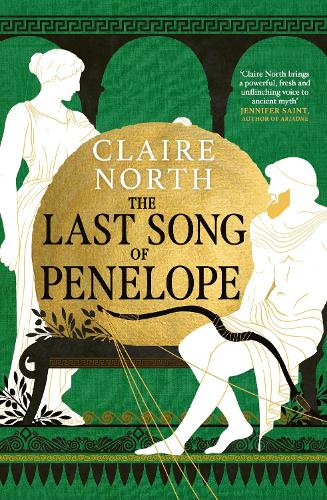Books read in 2024
1. Number 10, Sue Townsend (Book Club Secret Santa)
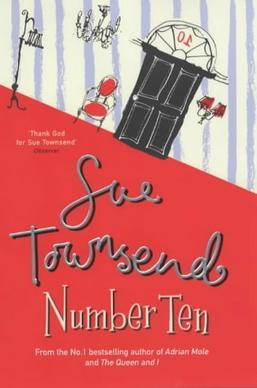
This was published in 2003 so I was afraid it would seem very dated. It wasn't. It tells the story of an out of touch Prime Minister who gives a car crash interview and, as a result, goes on a journey of discovery around the country. He's accompanied by the policeman, Jack Spratt, who is normally on door duty at Number 10 and who was the blacksheep of his criminal family (Jack is straight). To add farce, the PM disguises himself by wearing his (neurotic) wife's clothes so that Edward Clare becomes Edwina. It's supposed to be funny and, well, it ain't serious, but I didn't find it hilarious. I wasn't able to suspend disbelief as much as is necessary for tale of this kind. Townsend makes a succession of serious points, however. For example: people have disused white goods in their gardens because of the land fill tax (I'm not sure that's true but it was one of the lessons). I was able to read almost all of this on the way back from Edinburgh where we'd been to see Wicked as a New Year treat. And treat it was!
2. Dead Sweet, Katrín Júlíusdóttir
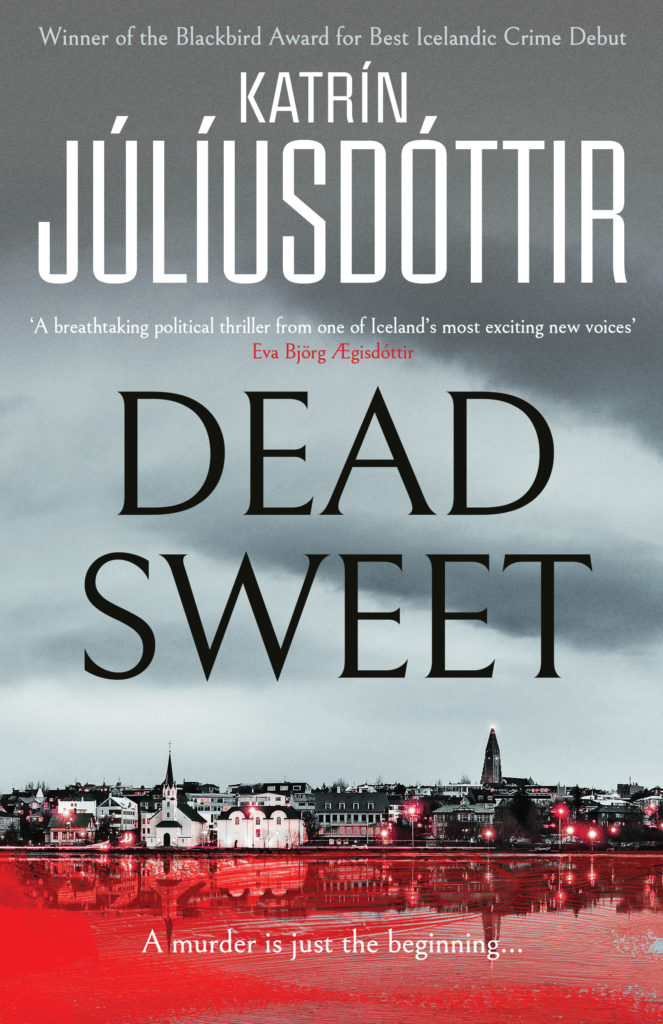
I saw this advertised in a tweet from the Victoria Bookshop in Haverfordwest who had a few signed copies with sprayed edges. I had to order it by phone and they were, of course, somewhat suprised to be sending to a customer so far away. A very satisfying slice of Icelandic Noir. It has many of the familiar tropes of a detective novel: going against the consensus, getting it wrong at first but clinging on to a hunch - but it's none the less enjoyable for all that. It's interesting, I think, that politicians, like Katrín Júlíusdóttir and Alan Johnson are able to turn their hand to thriller writing so effectively.
3. Machine Vendetta, Alastair Reynolds
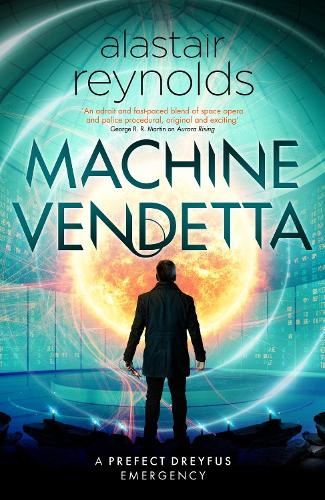
Dreyfus continues his battle against Aurora and The Clockmaker while Valery continues to be looked after at Hospice Idlewild. This series of Prefect novels, all within the Revelation Space universe, will definitely bear re-reading when opportunity allows. They're all terrific and I whip through them like a hound but I know I'm missing a lot of the nuance because of the gap between reading each novel. There are references to previous events and characters that I can't recall in sufficient detail. This one has a very good ending.
4. The Future, Naomi Alderman
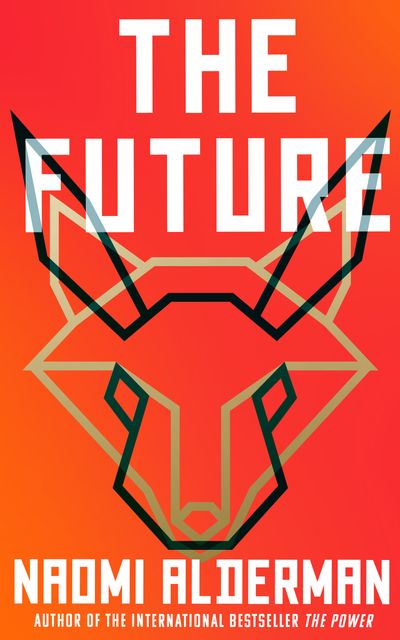
I wasn't going to buy this. We read The Power in book club a few years back and, although I enjoyed that, I wasn't immediately minded to buy Naomi Alderman's next noevl. But there was a signed first edition with sprayed edges on sale when I made my first visit to the new Waterstones in Sudbury. I'm glad I didn't resist. It has thinly-disguised parts for Bezos, Musk and Zuckerberg as they strip-mine the planet of its decency. What they reckoned without was those closest to them were all-too aware of what they were doing and had the means to stop them. Part eco-thriller, part commentary on the world as it has become. A terrific read.
5. The Death of Sir Martin Malprelate, Adam Roberts
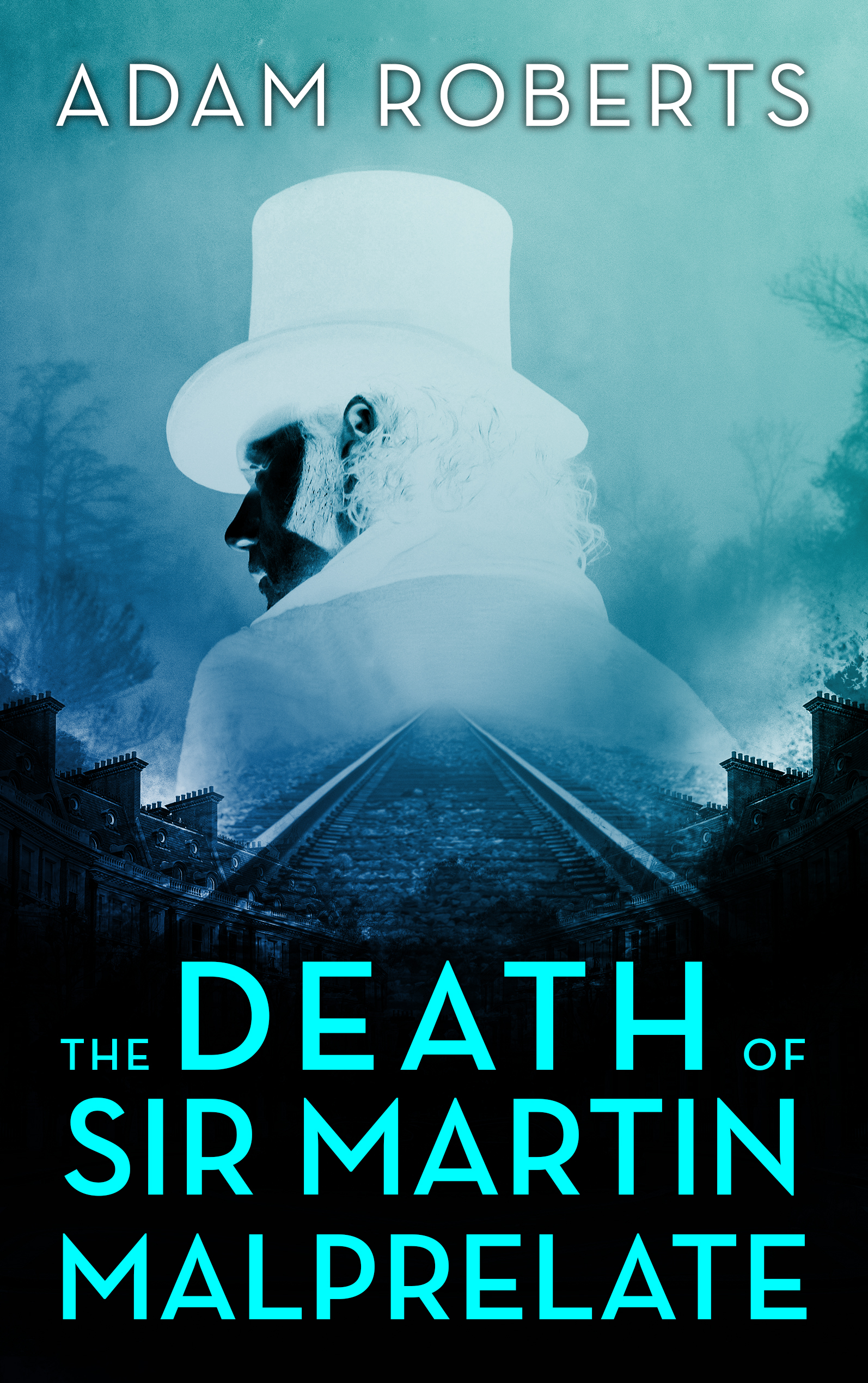
Adam Roberts having fun writing something like an SF novel but very much within the bounds of his day job as a professor of 19th century literature. So we see multiple references to other literary characters (from Dickens especially) and the main protagonst is Sherlock Holmes' father. He also places two of H G Wells' most famous characters at the centre of the story. Not a page-turner, but a very clever 'gothic novel' that's actually rather splendid.
6. Stranger on a Train, Jenny Diksi (Book club, Kate)
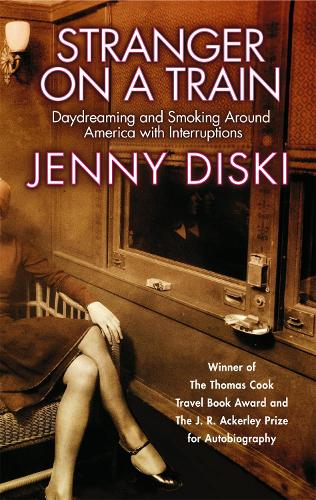
I'm guessing it's the subtitle: Daydreaming and smoking around America with interruptions that caught Kate's attention.
This wasn't a page-turner but it kept me engaged to the end. Like others in the group, I found the constant talk of smoking to be tiresome after a while. But the people she meets and the experiences she has are certainly engaging and clearly authentic. The book starts with her as a passenger on a cargo ship. Trains only come in later. But it's all about the people she meets and how everyone, Diski herself included, is a stranger.
7. Time Shelter, Georgi Gospodinov
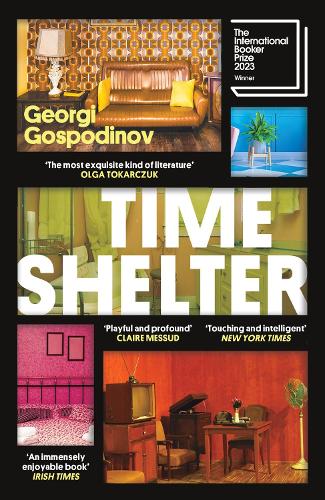
I bought this on a visit to an independent bookshop in Woodbridge. I told the staff some of the books I'd really enjoyed recently and asked if they had any reccomendations and this was their response. An International Booker Prize winner (2023), it's translated from Bulgarian. It's a fascinating idea. The recreation of times past - usually the time when you were young - and living in that time, albeit an idealised version. It starts out as therapy for those suffering from dementia but then becomes more torutous as EU Member States all hold referenda on which decade the entire country should now re-live. And reenactments turn into, well, more faithful than is ideal for the likes of the person playing Archduke Ferdinand, for example. I found the whole section on the referenda very thought-provoking as it seemed entirely plausible given the UK's real-life referendum based on the entirely bogus notion of going back to a bygone age.
8. Day One, Abigail Dean
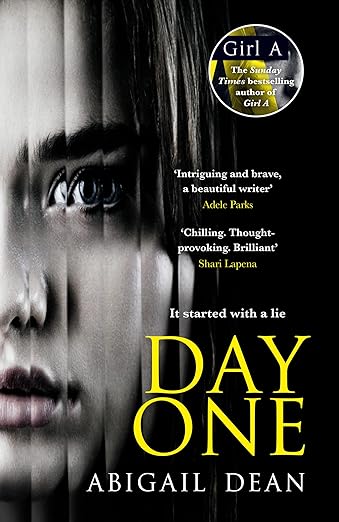
I have been looking forward to reading whatever Abigail Dean wrote next as soon as I finished Girl A. The danger, of course, is that she might have been a one-idea writer. Nope. This is really good. It didn't quite have the same impact as Girl A did but that's unfair - this is a good and intriguing novel in its own right, irrespective of what has gone before it. The narrative centres on a school shooting in a small Lake District town. Picking up on the kind of activity exposed so well by Marianna Spring where people set out to 'prove' that such disasters never happened and that all the victims are actors, Dean has such a character, Trent, effectively pitted against the lived experience of one of the people deeply affected by it, Marty. Once I got over the irritation of Marty being short for Martha, not Martin, I was able to follow along easily (I read this in a few days while in Newport). I'm not sure why but Marty is written in the first person but all other authorial voices are written in the third. I'm due to go to an author event with Abigail Dean in less than a week from the time of writing this - that'll be my question.
Coda - it was the editor's suggestion. Marty was originally written in the third person but the editor suggested it be changed to make it more inimate. Which worked. So then the question was why the others weren't also re-cast in the first person? It seems that, no, the intimacy of being the first person really only works for one character. Book three is already written. I'll definitely be in the queue for that one too.
9. The Last Murder at the End of the World, Stuart Turton
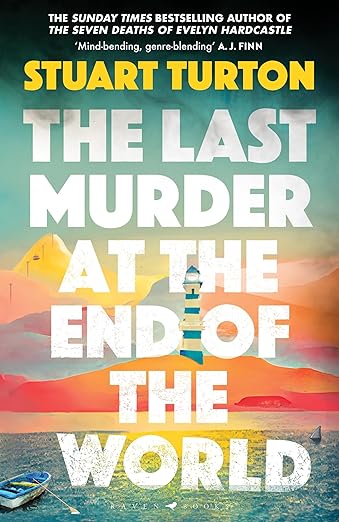
Another terrific reality-bending mystery from Stu Turton. This one has a mad scientist, a remote island, a world-endling plague (almost certainly man-made), analogues of Eloi and Morlocks and plenty of intrigue. Good stuff.
10. Anna O, Matthew Blake
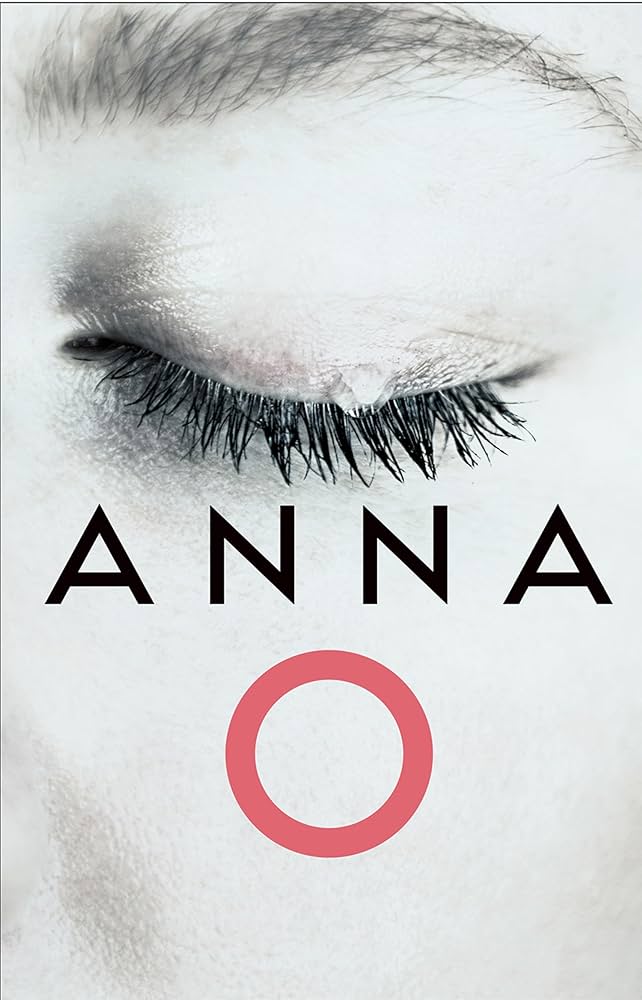
One I picked upon a visit to the Victoria Bookshop. I'd not heard of this before but am glad I saw it. An excellent thriller with a solid, twisty plot line. The Patient X story line, which turns out to be central to the whole thing, lost me a few times. As is befitting of a thriller, I was convinced I knew their true identity at multiple times (and ws proved entirely wrong in the end). I looked up several assertions in the book and was pleased at how many turned out to be true. Freud's first patient really was known as Anna O, for example. Wouldn't be at all surprised to see this as a TV drama one Sunday night.
11. Medea, Rosie Hewlett

The story of another powerful woman of Ancient Greece. This one carries the gift/curse of being able to weild magic (that she learned from her aunt, Circe). She uses it to help Jason when he and the Argonauts turn up to steal the Golden Fleece. It doesn't end well of course. I read this more or less to get me back into this particular genre in time for Claire North's imminent final installment of the Songs of Penelope. Enjoyable throughout.
12. The Men Who Stare At Goats, Jon Ronson (book club, Nickie)
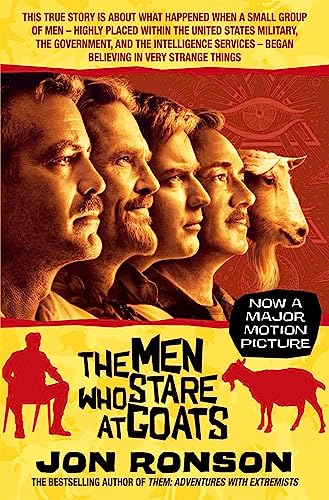
I managed to read more than half of this but it was a struggle. This is the true account of a bunch of very stupid men being enabled by even more stupid men, all in scarily responsible jobs within the US military. I know others in the group found it funny. I wish I could have done so. I just saw the stupidity but not the comedy, sorry. Nothing wrong with Jon Ronson's writing and journalism, it's the subject matter that killed this for me.
13. The Mars House, Natasha Pulley
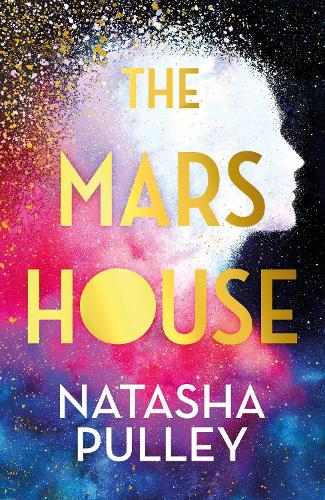
At the time of writing this, I'm about 40 pages away from finishing this good read. I had to put it aside to avoid carrying multiple hardback books on an extended work trip where space in my bag is at a preimium. It's set on a terra-formed Mars but really it's about discrimination against 'the other'. The Mars natives have done away with gender altogether so that everyone is they/them whereas immgrants from climate-wrecked Earth are gendered. Try as I might I still trip up on they/them being used as a singular pronoun. But I guess that's part of the thought provocation the book seeks to achieve. Really impressive world-building and richness of writing. The development of the relationship between the main characters who are very much on opposite sides of the divide is the major narrative theme. I'll definiely look out for more by Natasha Pulley.
14. Invasion, Frank Gardner

This is a work of fiction but for the most part it is a very plausible telling of the Chinese invasion of Taiwan. This is Gardner's third novel, I learn, so I should go back and read the previous two. All three feature the MI6 operative Luke Carlton. It's a typical thriller with short chapters and plenty of pace. We follow the activities of multiple people in multiple parts of the world including the men and women on board naval ships and in various political command centres. Good fun from start to finish. Only disappointment for me was the way that one of the characters was handled at the end after she'd been, literally, left to the dogs. I think it was meant to be a plot twist but actually it just struck me as a bit silly.
15. Ma Petite Rosette, Tom Williams
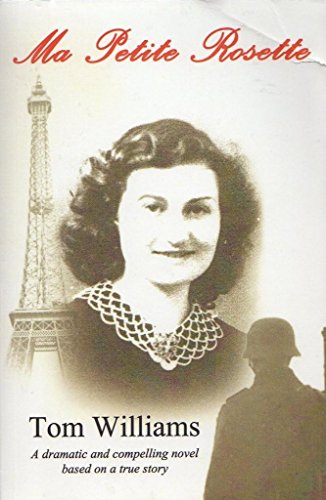
My copy of this book is personally dedicated to Donnie and Rebecca, signed in 2014. I only have the vaguest of memories of the occasion when we met. I think we were visiting Waterstones in Ipswich and Tom Williams was there. Needless to say, D&R have even less memory. Ah well, … you can but try.
It begins with a rural French idyll that is disturbed by an RAF bomber being shot down and two crew being rescued from the mudflats before the tide overcame them. This leads to the French family being arrested, including Rose who, at 16, spendt months in jail under the occupation force. For many chapters I thought this would be her motivation to become active in the resistence and we'd learn of her later derring do but actually, no, it's the story of the appaling treatment she suffered. In some ways it was reminiscent of The Incredible Events in Women's Cell Number 3. Don't expect any moments of levity in this slightly fictionalized version of a true story.
16. Maame, Jessica George (book club, Elaine)
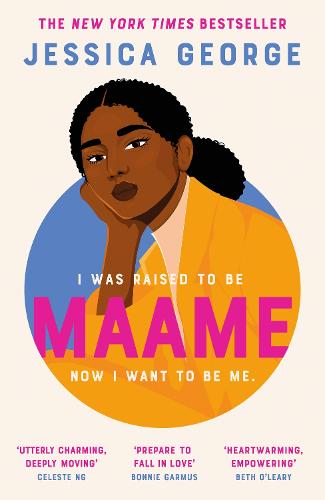
Wasn't sure I'd enjoy this but the whole point of being in a book group is to read things you wouldn't pick up yourself. I'm glad Elaine chose this - it was jolly good. It's in the genre of someone being born into a role and then escaping to become themselves. Not a new narrative but non the worse for that. Strong hints of autobiography with the protagonist submitting a raw draft of a novel about someone with her name to someone with the same name as her agent. Her young adult life is spent caring for her sick father while her mother and brother are absent without leave. Well worth the read.
17. Boys Who Hurt, Eva Björg Ægisdóttir
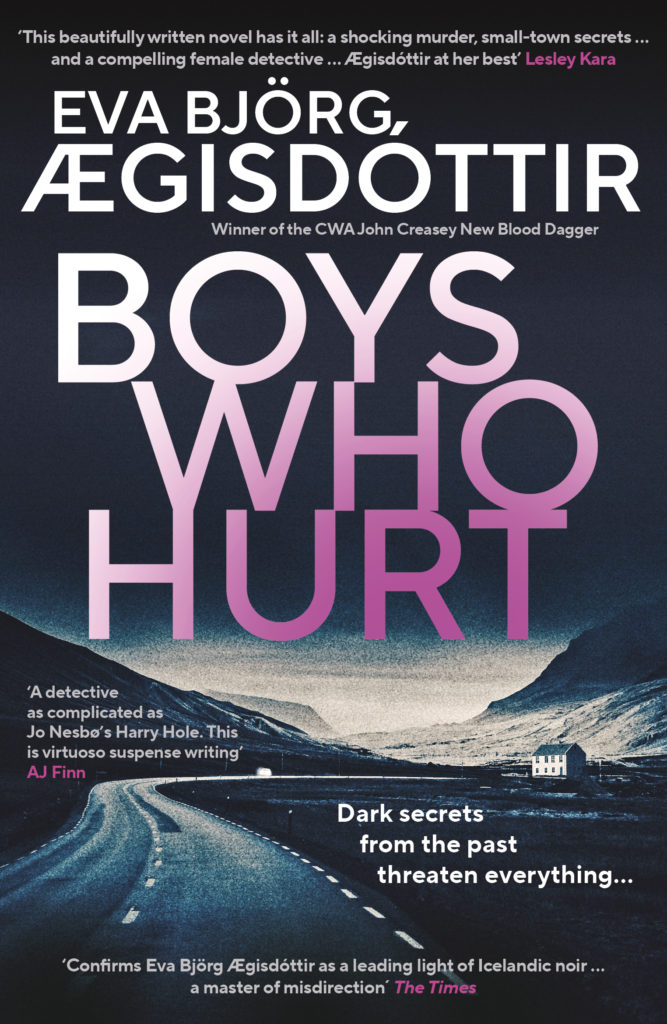
Another good 'un from the Icelandic Noir series featuring Elma and the usual supporting characters. I was slightly uncomfortable with the idea that Saevar and Elma are living in a house that used to be the home of one of the victims and happen to find usful information when clearing out the attic - that seemed unusually and unnecessarily coincidental. But the way the plot lines weave together and the story unfolds is still highly satisfying.
18. Floating Hotel, Grace Curtis
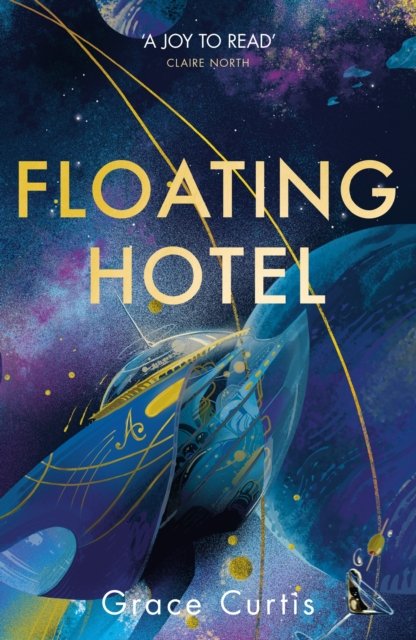
I was expecting this to be much more similar to her first book than it turned out to be. This one has a luxury hotel in space that travels around the inhabited galaxy with guests coming and going. Most of the intrigue though is focused on the staff who themselves all have colourful back stories. The empire itself is evil and oppressive of course so several plot lines are about subverting it. I had slight difficulty keeping all the different characters in my head but that's my problem. They were all interesting and it's nice to get to know more than just the protagonist and a couple of others. Really good resolution to the problem of how to escape the empire's goons.
I bought this from Toppings who offered me either a first edition first printing or a signed second printing. I went for the latter and immediatelt regretted it. You can convert an unsigned first edition into a signed one a lot more easily than a signed seconf printing into a signed first printing.
19. My Darling Daughter, JP Delaney
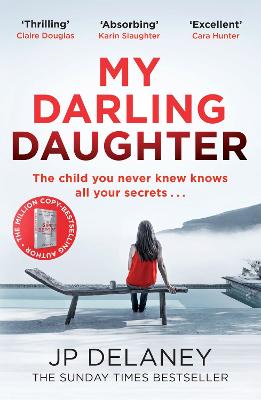
I bought this on a visit to the Victoria Bookshop and read it from start to finish in two days. It covers the behaviours of adopted children very, very well. For the sake of good story-telling, the adults are all extreme in their own way (pop stars, drug lords etc.) but the way that Sky/Anna behaves and reacts resonates exactly with my lived experience and that of fellow adoptive families. Don't read this if you're thinking of adopting - it's not all that bad, honestly. But if you have adopted, or know others who have, this will help you understand the differnce between normal teenage rebellion and how some adopted children behave. It also shows how little help is available from social services and how hard some adopted parents have to fight on behalf of their children.
Absolutely superb. Thank you JP Delaney (a nom-de-plume for an author who writes under several different names).
20. The Last Song of Penelope, Claire North
